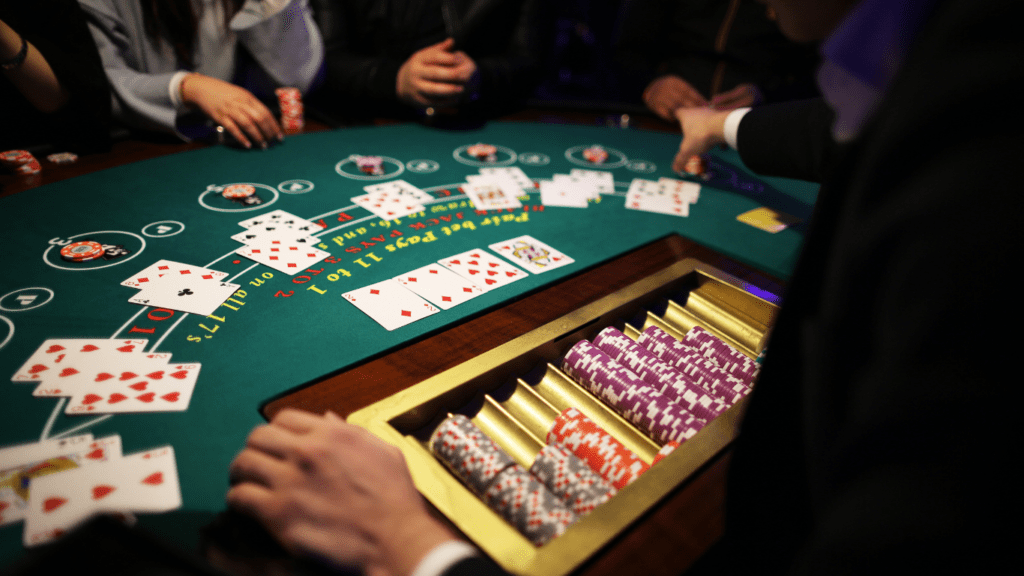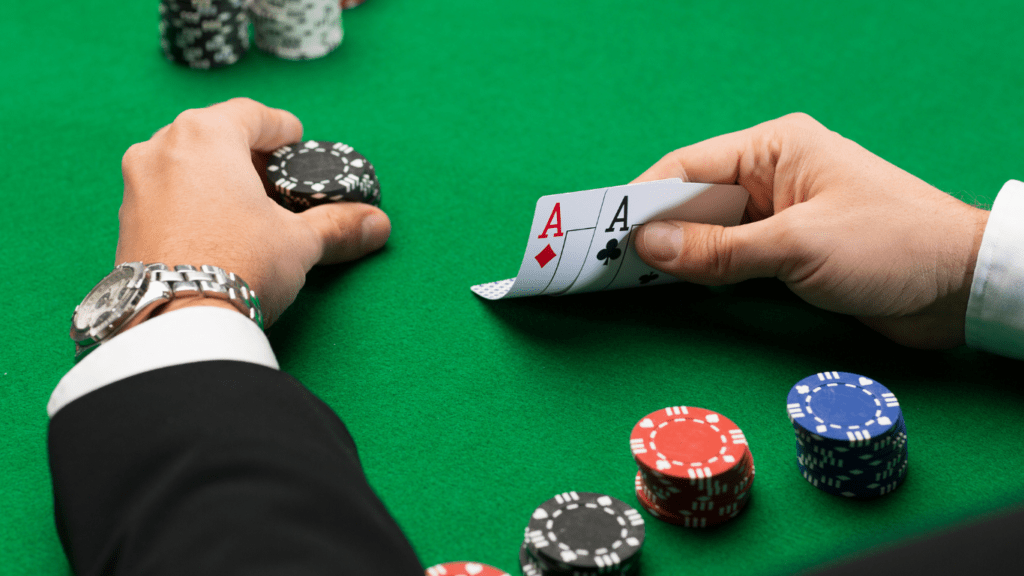Understanding Luck in Games and Gambling
Luck plays a pivotal role in creating unpredictable outcomes in both games and gambling. By examining its impact, we can uncover patterns and better appreciate the balance between chance and skill.
The Role of Luck in Competitive and Casual Gaming
Luck influences outcomes differently in competitive and casual gaming. In competitive environments, like professional esports tournaments, random events (e.g., weapon drops in battle royales) can shift advantages briefly, but skill usually dominates over time. In contrast, casual gaming often incorporates randomness, such as card draws in digital card games, to ensure varied experiences and maintain accessibility for players with different skill levels.
For example, a highly skilled player may lose in poker due to an opponent landing a rare straight flush, demonstrating how luck disrupts expected outcomes momentarily. This duality makes games engaging, blending fairness with chance.
Differentiating Luck from Skill
Luck originates from factors beyond a player’s control, such as dice rolls or random number generation, while skill stems from:
- knowledge
- strategy
- practice
Games like roulette rely almost entirely on luck, as each spin’s result is independent of past attempts. Conversely, chess is skill-based, requiring mastery of strategies rather than reliance on random events.
Mixing skill with luck creates hybrid games. For instance, Texas Hold’em poker hinges on strategic betting and strong hand evaluation, but unpredictable card distributions introduce luck. By separating these elements, we better understand their individual contributions to outcomes.
The Science Behind Luck
Luck in games and gambling arises from probabilities and random events. Understanding these elements through scientific analysis highlights their influence on outcomes.
Probability and Randomness in Games
- Game mechanics use probability to dictate possible outcomes. Randomness adds unpredictability, ensuring each event has an unbiased likelihood. For example, die rolls in board games assign a fixed probability to each result, like a 16.67% chance for any side on a six-sided die. Similarly, card draws shuffle deck sequences to maintain fairness.
- Random number generators (RNGs) simulate randomness in digital games.
- These algorithms reproduce statistical randomness, ensuring outcomes such as loot drops or spins aren’t predetermined.
- Multilayered RNG tests validate fairness and reduce bias.
- Controlled randomness affects gameplay dynamics.
- In casual games like Mario Kart, weaker players often receive better in-game items—a deliberate probability adjustment designed to balance the experience.
Statistical Insights Into Gambling Outcomes
Gambling employs mathematics to maintain house advantage. For example, slot machines operate on RTP (return to player) percentages, typically ranging between 85% and 98%, reflecting how much money returns to bettors over time. This creates predictable earnings for casinos when scaled.
In games of chance, probability distributions affect results. A roulette wheel with 38 slots, for instance, gives each spin a 1/38 chance per number, equating to a house edge of 5.26% on American roulette. Statistical analysis confirms these probabilities over thousands of iterations.
Player outcomes often follow Gaussian distributions in gambling. Most individuals experience minor wins or losses, while extreme outliers achieve jackpots or significant losses. Analyzing these patterns over large data sets reveals insights into player behavior and risk assessment.
Real-World Examples of Luck in Action

Luck plays a decisive role in games and gambling, often creating unforgettable moments and shaping outcomes that defy expectations. Examining real-world examples highlights its impact and reveals how unpredictability fuels excitement.
Iconic Moments in Gaming Influenced by Luck
Many iconic gaming moments underscore luck’s power. In 2019’s Fortnite World Cup, a wildcard storm direction forced professional players into unexpected strategies, leading to surprise eliminations. Similarly, in competitive Dota 2, critical hit RNGs have repeatedly turned losing battles into improbable victories, changing tournament trajectories.
Randomized item drops also showcase luck. In World of Warcraft, ultra-rare loot like the “Ashes of Al’ar” mount is obtained with less than a 1% drop rate, making each success a standout community event. These moments illustrate how games integrate unpredictability into their mechanics to generate thrilling scenarios.
Stories of Gambling Wins and Losses
Gambling provides countless stories of extraordinary fortune and devastating losses. A famous example occurred in 1992 when Archie Karas turned $50 into $40 million playing poker and craps, only to lose it all within three years, underscoring the transient nature of gambling wins.
Lottery stories further highlight extremes of luck. In 2016, three winners split a record-breaking $1.586 billion Powerball jackpot, while countless others who played faced the astronomical 1 in 292.2 million odds and lost. Casino slot machines also echo this dynamic; an Elvis Presley-themed slot at a Las Vegas casino paid $21 million in 2005 to a single player, achieved purely through chance.
These examples demonstrate how luck governs gambling outcomes despite the mathematical structures in place, cementing its role in both extraordinary success and failure.
The Psychological Impact of Luck
Luck significantly affects player emotions during games and gambling, shaping their behaviors and decision-making processes. Understanding these psychological effects reveals why luck-driven moments leave such lasting impressions.
How Players React to Wins and Losses
Players experience intense emotional highs during lucky wins, often attributing success to skill rather than chance. This cognitive bias, known as the self-serving bias, reinforces confidence and increases risk-taking in future gameplay. Conversely, unlucky losses evoke frustration or disappointment, with players frequently blaming external factors like unfair odds. Such reactions can drive players to chase losses, leading to impulsive decisions, especially in gambling.
Research data links emotionally driven reactions to player retention and spending. For example, a study published by the International Journal of Mental Health and Addiction observed that gamblers who experienced early wins tended to increase their bets, believing their streaks were skill-based rather than luck-dependent. Similarly, in games with loot systems like FIFA Ultimate Team, players show increased purchases following rare-item unlocks, indicating how wins amplify financial engagement.
The Allure of Randomness and Its Effects on Behavior
Randomness in games creates suspense and keeps players engaged by introducing unpredictable outcomes. This element of chance stimulates dopamine release in the brain, making the gaming and gambling experience more rewarding. Studies, such as those from the journal “Nature Neuroscience,” demonstrate how variable rewards, like jackpots or rare drops, activate the brain’s reward centers more strongly than predictable rewards.
Players often perceive randomness as an opportunity for dramatic success, which cultivates hope and sustained participation. This behavioral impact is evident in slot machine mechanics, where flashing lights and celebratory sounds accompany small wins, encouraging continued play. In gaming, randomized rewards, such as legendary items in Diablo IV, incentivize players to invest more time in pursuing outcomes, even when probabilities are low.
Overreliance on randomness can also foster superstitious behaviors. Gamblers may engage in rituals like wearing “lucky clothing,” while gamers might repeat specific in-game actions, falsely associating these with improved chances. These patterns highlight how the allure of uncertainty shapes player mentality and actions.


 Spenceronie Hubbard was a driving force behind Gamble Today Smart’s exploration of emerging technologies. With a forward-thinking approach, Spenceronie championed the integration of AI and blockchain into the platform, ensuring it stayed ahead of industry trends. His vision and technical expertise helped position Gamble Today Smart as a leader in tech-driven gambling innovation, making it a go-to resource for modern gamblers.
Spenceronie Hubbard was a driving force behind Gamble Today Smart’s exploration of emerging technologies. With a forward-thinking approach, Spenceronie championed the integration of AI and blockchain into the platform, ensuring it stayed ahead of industry trends. His vision and technical expertise helped position Gamble Today Smart as a leader in tech-driven gambling innovation, making it a go-to resource for modern gamblers.